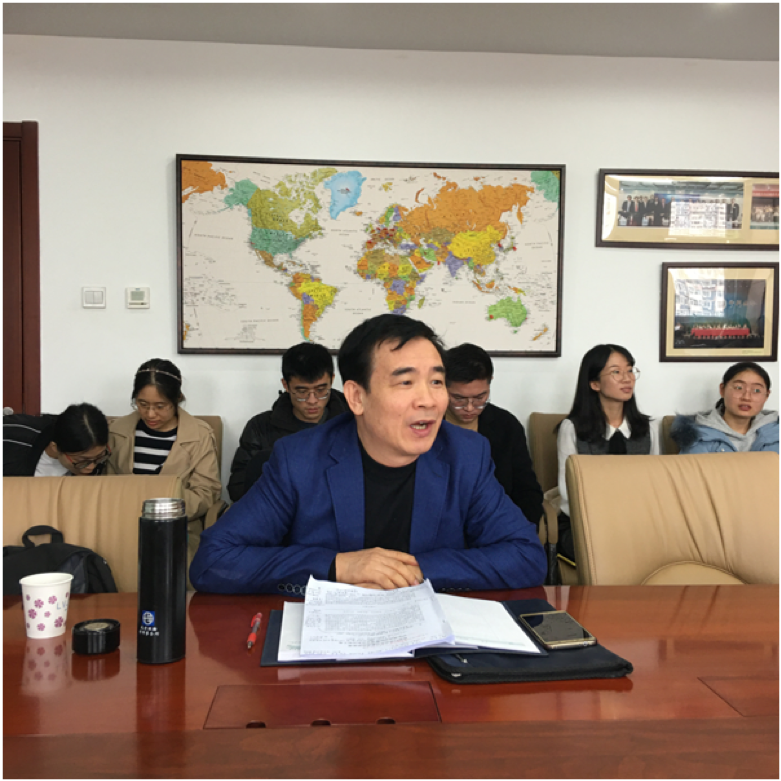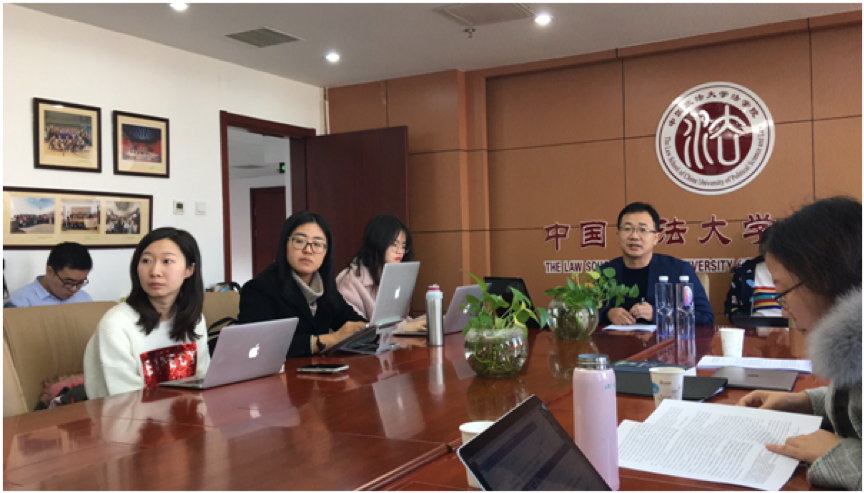The Institute for Administrative Law Studies Successfully Held the Fifth Regular Biweekly Meeting for Latest Works Sharing
The Institute for Administrative Law Studies Successfully Held the Fifth Regular Biweekly Meeting for Latest Works Sharing
On 15 November 2019, the Institute for Administrative Law Studies successfully held the fifth regular biweekly meeting for latest works sharing. The “Latest Works Sharing” is an academic meeting where keynote speakers share their recent and not published works, aiming to promote peer-to-peer interchanges and deep discussions. Professor Cheng Xiezhong of the Institute for Administrative Law Studies reported his newly-written paper " Functions of Chinese Administrative Litigation Revisited". Professor Wang Chengdong, Professor Zhao Hong, Dr. Ma Yun, Dr. Zhang Dongyang from the Institute for Administrative Law Studies, Dr. Lv Mengxing from Civil, Commercial and Economic Law School, Postdoctor Chen Jinbo, from the Institute for Litigation Law Studies, as well as dozens of graduate students and PhD students from various universities participated in the meeting.

At the beginning of the meeting, Professor Wang Chengdong, Deputy Director of the Institute for Administrative Law Studies and Secretary of the Party committee, introduced the original intention of the meeting. He believed that this activity will be beneficial to academic exchanges and also will strengthen the connection between teachers and students.
As the keynote speaker, Professor Cheng Xiezhong combined the published results to elaborate the development of the basic concepts – “Subjective Litigation” and “Objective Litigation”, pointing out that there is a cognitive bias in the distinction of these two concepts. He also pointed out that the functional orientation of administrative litigation in China should be returned to the constitutional norm. Article 41 of Constitution and the principle of legality review established by Administrative Litigation Law indicate that administrative litigations in China have stronger objective litigation characteristics.

After the excellent report, presenting administrative law professors shared different views and opinions on the subject of this report combining their own research results. Professor Wang Chengdong pointed out that it is necessary to refine the original intention of the administrative litigation function – to ensure that administrative powers abiding by law, by retrospecting the legislative history, and to assist in the theoretical controversy by exploring the institutional connotation of the People's Congress System. Professor Zhao Hong pointed out that the dual boundary of the concept of subjective and objective litigation has both the academic and practical significance that is beyond the definition of plaintiff qualifications. She also analyzed the report based on the experience of German law. Other professors and students also expressed opinions positively.

Professor Cheng Xiezhong responded to these opinions one by one and expressed his gratitude to everyone’s coming and heated discussion. The fifth “Latest Works Sharing” ended in the warm applauses of the teachers and students.